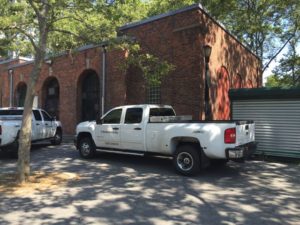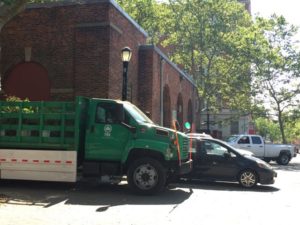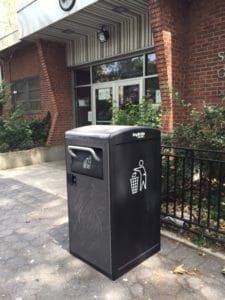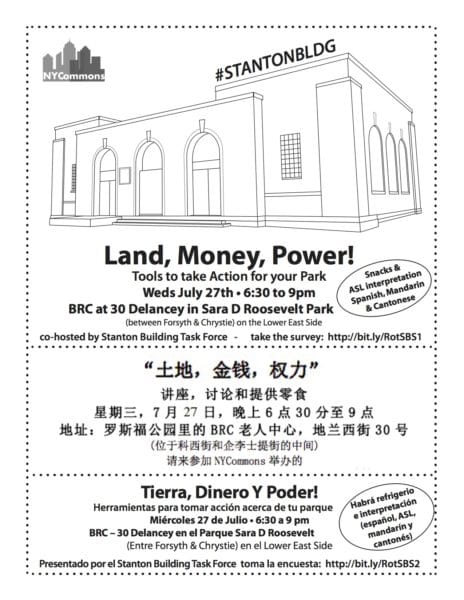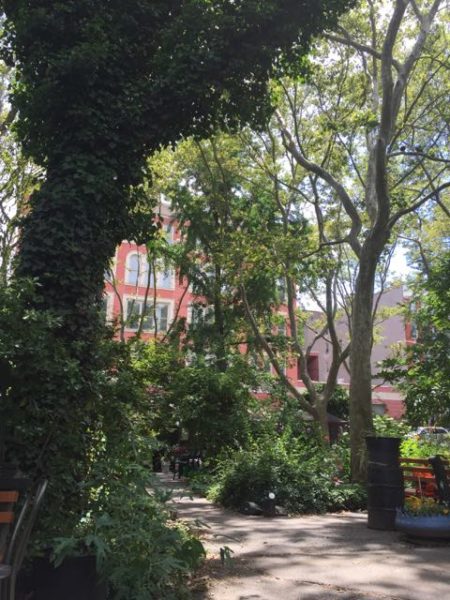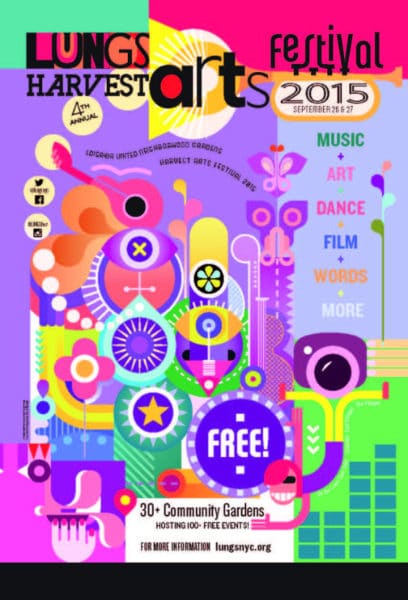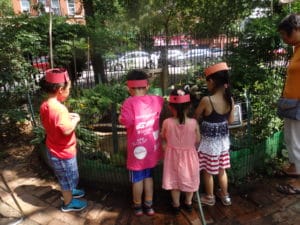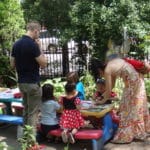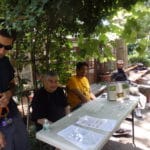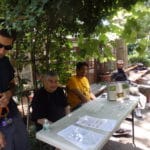Rivington House’s staff and residents were the Coalition’s partners, friends and allies for decades. It would be wonderful to have them back.
“Our continuing stand is for the return of Rivington House. It’s the only conscionable position for those of us who knew the people who lived and worked there.
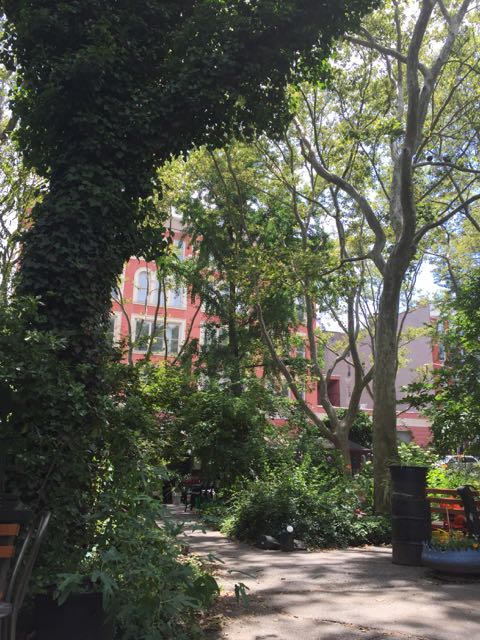
Here is our Press Release reflecting our perspective on the recent report from the Department of Investigation.
In the meantime we continue to organize and strategize.”
Also reported in the Lo-Down.
FOR IMMEDIATE RELEASE
Neighbors to Save Rivington House welcomes NYC DOI Report, rejects proposed ‘compensation’.
The group calls on Mayor de Blasio to return building to its function as community health facility.
New York, NY Tuesday, July 19th, 2016
Neighbors To Save Rivington House is grateful to the NYC Department of Investigation for the careful and enlightening report released on July 14th. It explains a great deal about the NYC government fiasco that our neighborhood is experiencing with the loss of our community health facility, Rivington House, that was promised to us in perpetuity. Whether the Rivington House situation has been caused by Mayoral staff ineptitude, a lack of good intentions, or both, it does not change the fact that Neighbors To Save Rivington House simply wants the facility back to serve our community’s most vulnerable citizens: the very sick and the fragile elderly.
The report is clear: the Mayor and his most senior staff were informed and discussed the proposed removal of the deed restrictions that protected our priceless community asset, and even discussed the likely outcomes should the deed restrictions be removed. Ultimately the Mayor’s office made no effort to protect the facility’s impending conversion from a nursing home to luxury condos.
The fact that the deed restrictions were lifted without any notice to our electeds or Community Board 3, and that there was NO chance for community discussion and comment is scandalous. The report makes it clear that the “public notification” was purposefully done in such a manner as to be virtually impossible to find in the City Record. This was done despite high-level emails stating that the community residents were extremely concerned about the potential loss of the facility. The Law Department of the City of NY’s refusal to cooperate fully with the NYC Department of Investigation including the redaction of a significant number of pages is stunning. We have no idea what those pages actually contain.
Senior level NYC government officials appear to have been unconcerned with what is normally termed “in the City’s best interest”. In the Land Use Justification, which DCAS borrowed from a memo of the lobbyist James Capalino, it was stated that “The need for the property to continue to be used as a residential health care facility has since passed”. Clearly this was erroneous given the desperate need for nursing homes in this community alone. We are also deeply disturbed that the City did not do its own research or find a reputable and informed source but instead relied on the perspectives of a paid lobbyist.
The value of Rivington House to this community is not quantifiable in dollars. However, even using a gross valuation in dollars whether in terms of services provided to past, present, and future residents of the Lower East Side or in terms of the significant public and non-profit monetary investment in its conversion into a nursing home, and certainly in terms of NYC real estate prices — this building’s worth was severely miscalculated.
More importantly nothing in the report, or the Mayor’s July 8th press release on the matter, addresses the one and only community requirement – the return of Rivington House to the community it has served since 1992. Neighbors To Save Rivington House call upon Mayor de Blasio to find a means to return the building to its only legitimate use – as a community health facility. We reject any offers of ‘compensation’ to a vaguely defined neighborhood. Without the return of Rivington House to the community, no monies given would provide relief to the parties that were in fact harmed by its closure. In the meantime Neighbors to Save Rivington House will continue to explore every option in pursuit of the reversal of this unconscionable breach of the public good.
Neighbors to Save Rivington House looks forward to a positive future where our community residents will find the facility available for their use. We sincerely hope that the Mayor will join us in this effort.
END
###

